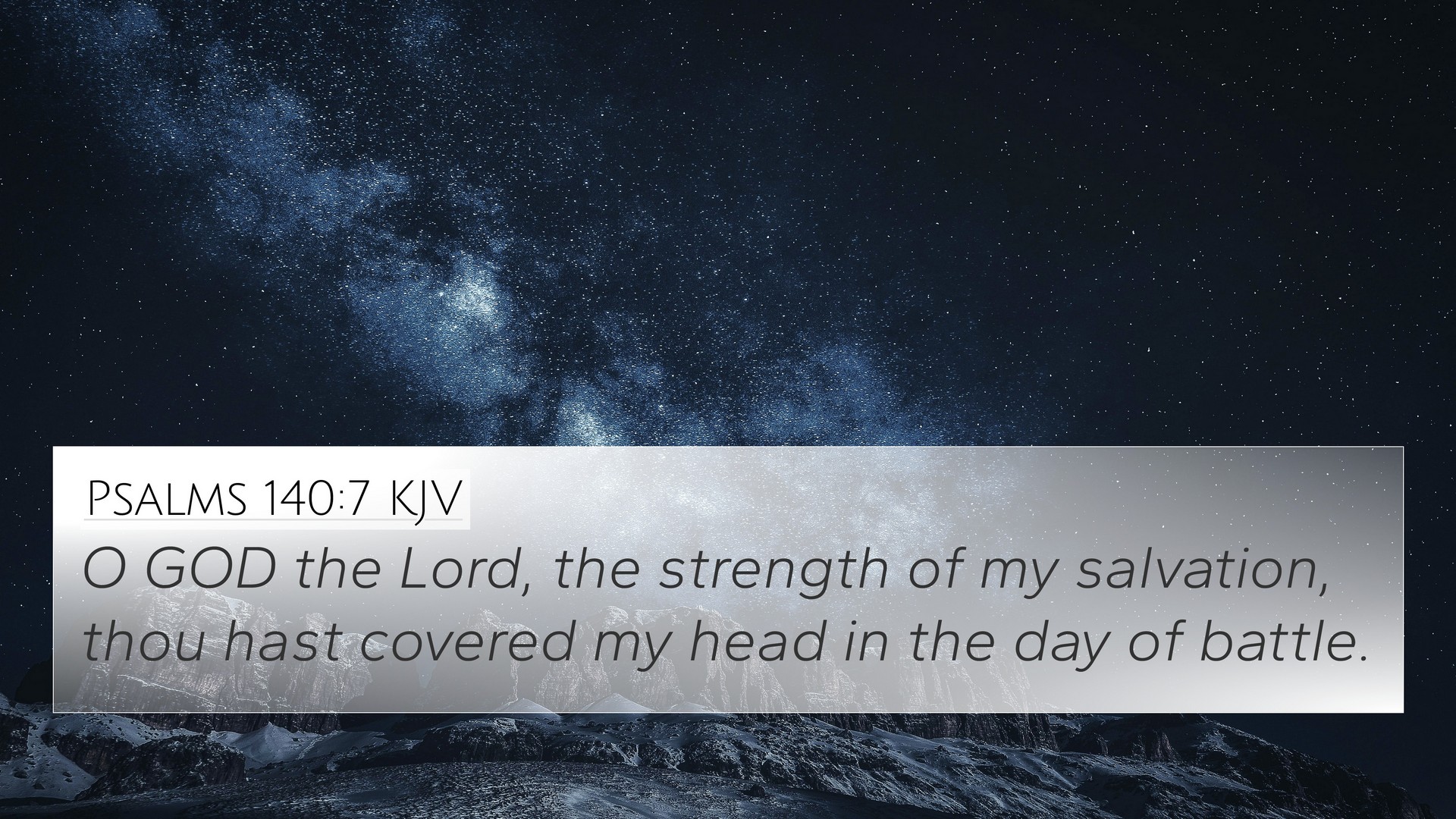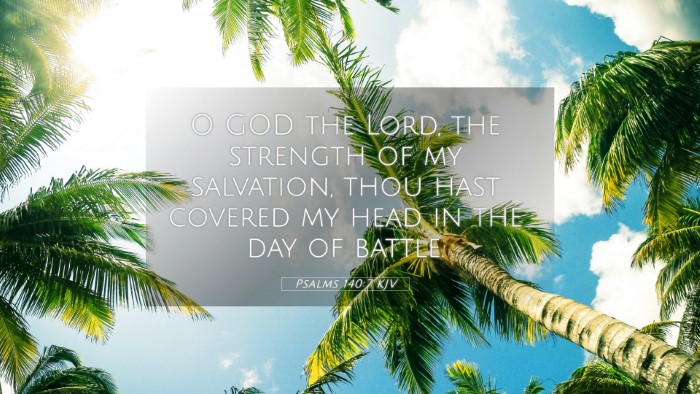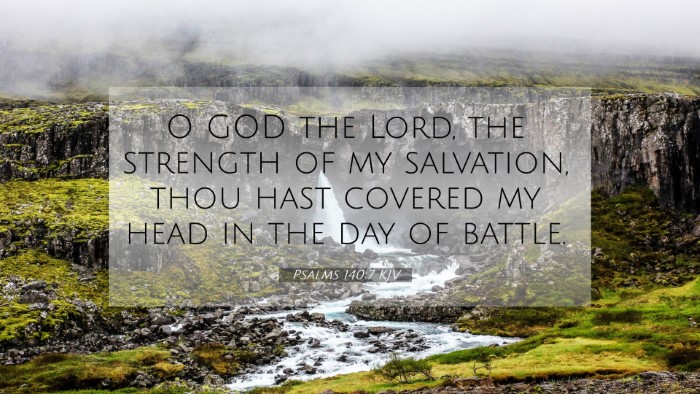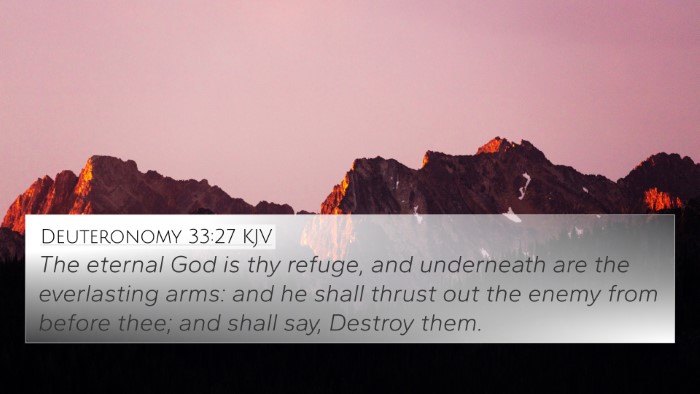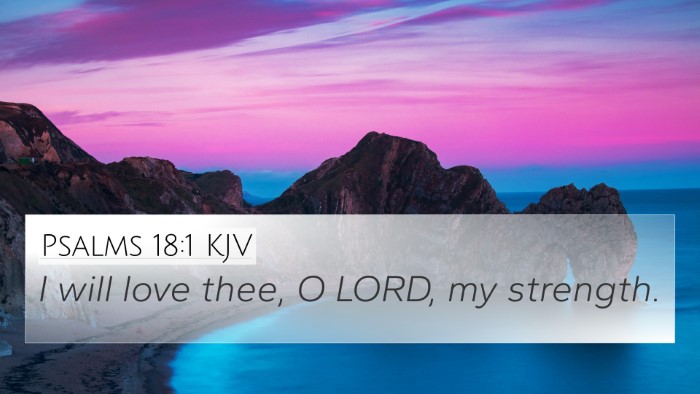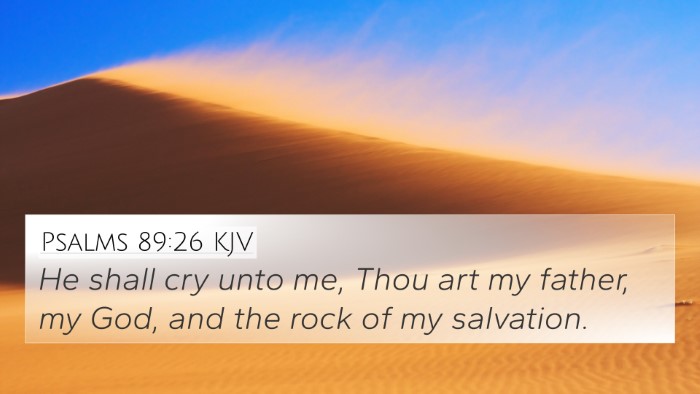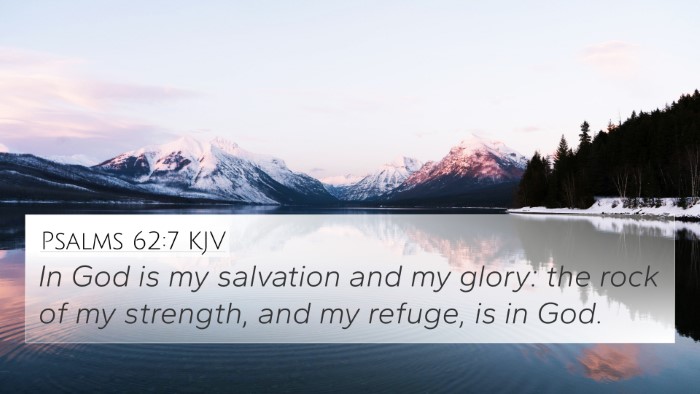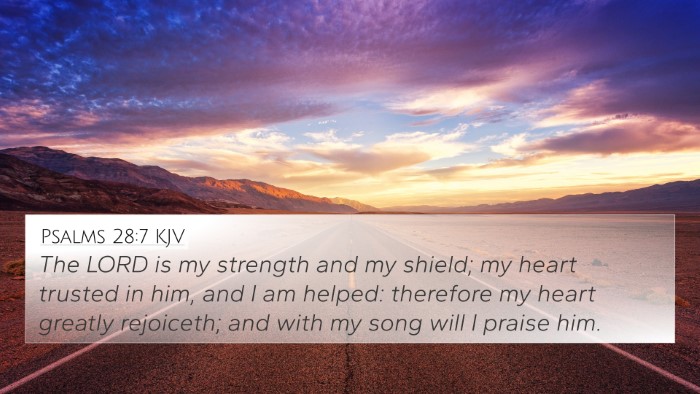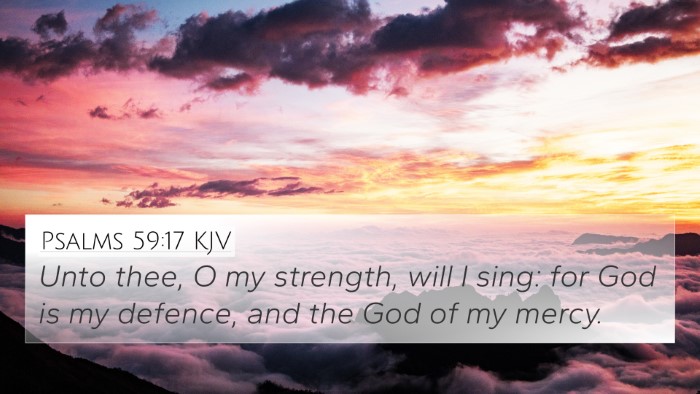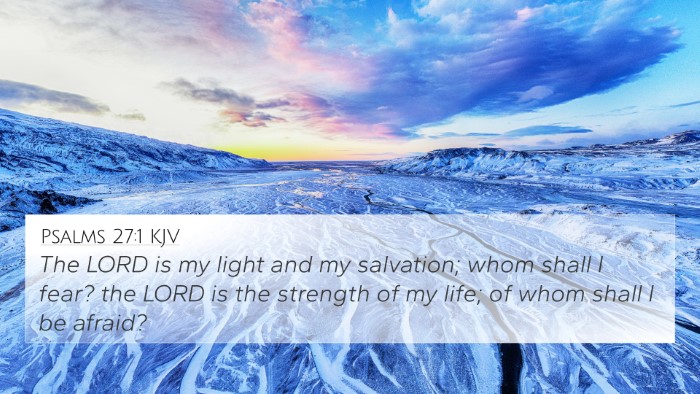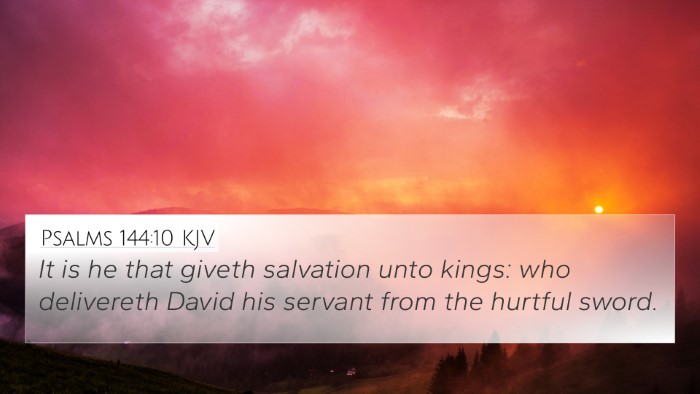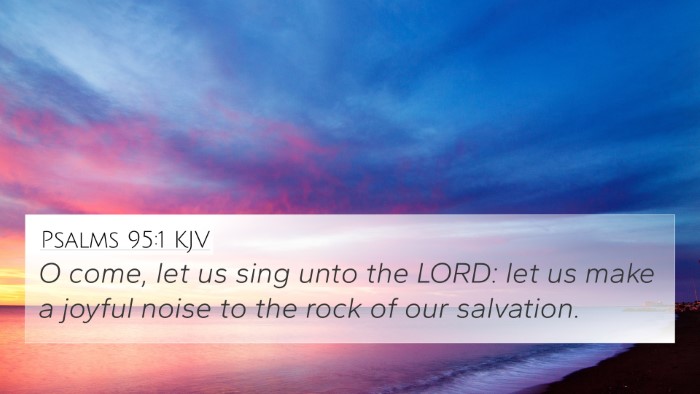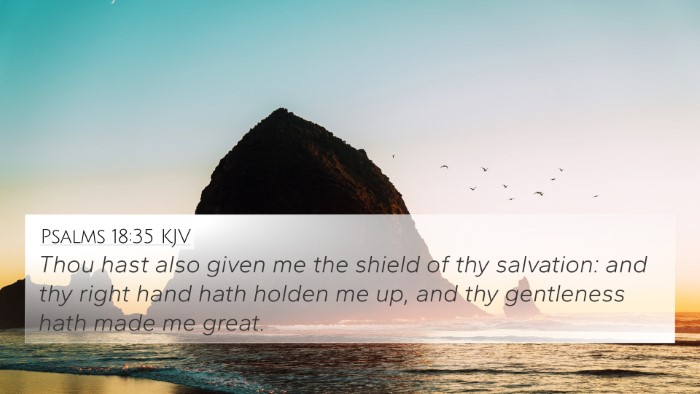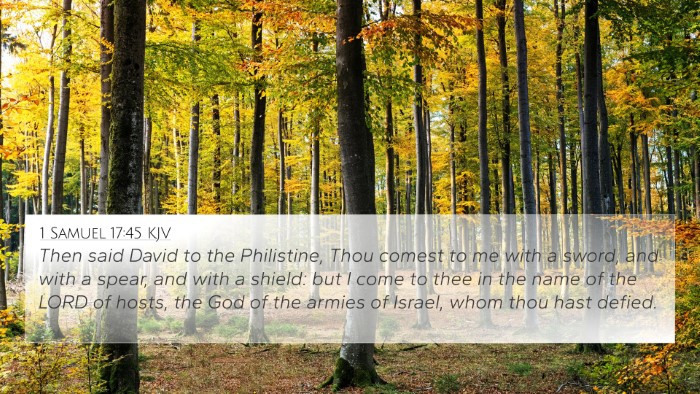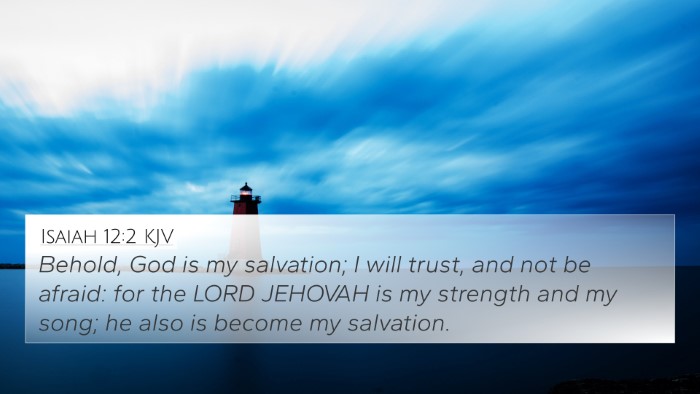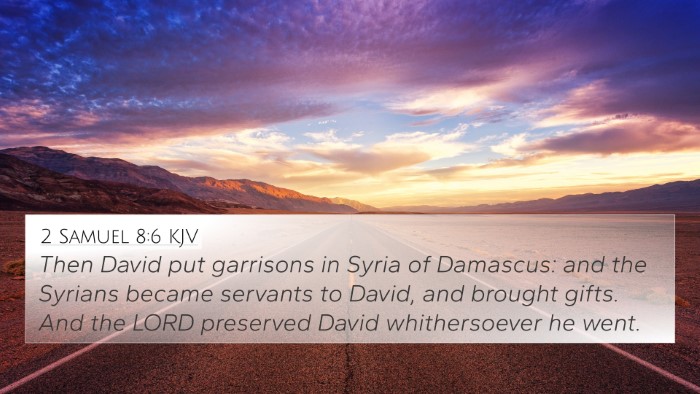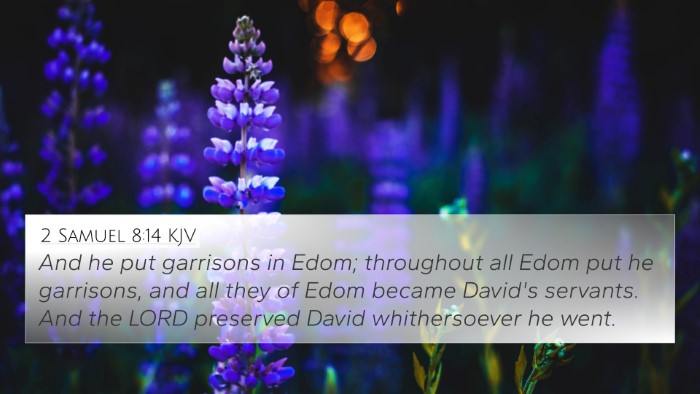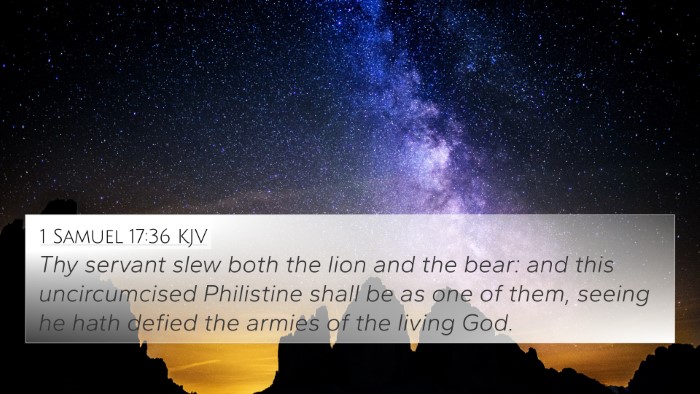This verse highlights the themes of divine protection and strength in times of adversity. Below is a collective interpretation based on the insights of various public domain commentaries.
Meaning and Interpretation
Psalms 140:7 expresses a profound declaration of God as the source of strength and salvation for the psalmist. This acknowledgment encapsulates the reliance on divine assistance during turmoil.
Key Themes
- Divine Protection: The metaphor of God covering the psalmist's head signifies shielding from harm and the assurance of safety.
- Strength in Salvation: God is portrayed as the ultimate source of strength, especially during battles, both literal and spiritual.
- Battle Imagery: The reference to a "day of battle" indicates a time of trial where spiritual warfare may be at play.
Commentary Insights
According to Matthew Henry, the verse reflects a cry for help that acknowledges God's power and readiness to deliver the believer from enemies. It illustrates the confidence found in God's salvific strength.
Albert Barnes emphasizes that the "day of battle" represents not just physical conflict but also the spiritual battles that believers face. He notes that God's protection is vital for perseverance through trials.
Adam Clarke provides insight into the nature of the psalmist's plea, implying that the request for shelter from God indicates a complete dependence on Him for deliverance in times of distress.
Bible Verse Cross-References
In the context of divine protection, several other Bible verses relate closely to Psalms 140:7:
- Psalm 91:2: "I will say of the Lord, He is my refuge and my fortress: my God; in him will I trust."
- Ephesians 6:10: "Finally, my brethren, be strong in the Lord, and in the power of his might."
- Isaiah 59:19: "So shall they fear the name of the Lord from the west, and his glory from the rising of the sun. When the enemy shall come in like a flood, the Spirit of the Lord shall lift up a standard against him."
- 2 Samuel 22:3: "The God of my rock; in him will I trust: he is my shield, and the horn of my salvation, my high tower, and my refuge, my savior; thou savest me from violence."
- Romans 8:31: "What shall we then say to these things? If God be for us, who can be against us?"
- Psalm 18:2: "The Lord is my rock, and my fortress, and my deliverer; my God, my strength, in whom I will trust; my buckler, and the horn of my salvation, and my high tower."
- Psalm 34:7: "The angel of the Lord encampeth round about them that fear him, and delivereth them."
Connections Between Bible Verses
The correlations highlighted in these verses reveal a thematic dialogue surrounding God’s protective nature, reinforcing the belief in His safeguarding presence throughout the Scriptures.
Cross-Referencing Biblical Texts
Understanding the connections between such scriptures can enrich one’s study and appreciation of Biblical themes. For instance, linking Psalms 140:7 to Ephesians 6:10 demonstrates the continuity of God as a source of strength across both the Old and New Testaments.
Tools for Bible Cross-Referencing
Utilizing a Bible concordance or Bible cross-reference guide can assist individuals in discovering these inter-Biblical connections more thoroughly.
Further Studies
Through comprehensive Bible cross-reference materials, believers can delve deeper into thematic Bible verse connections, such as the repeated assurance of God’s deliverance and protection which appears in the Psalms as well as other books.
Engaging in comparative Bible verse analysis allows for a richer understanding of God's character and His unwavering support during life’s battles.
Conclusion
Psalms 140:7 serves as a powerful reminder of God’s strength and protective nature. By integrating insights from various commentaries and engaging in thorough cross-referencing, readers can gain a fuller comprehension of their relationship with God and the assurance of His presence in times of trouble. Exploring similar verses can uncover a broader understanding of Biblical themes, enhancing one’s spiritual journey and faith.
